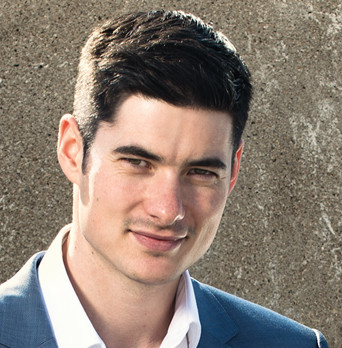Rest as a dirty word

I have noticed how fashionable it has been recently to proclaim how hard, and especially how many hours we work. We often hear about double-digit numbers, very early wake-up calls and, if at all, a very late bedtime – preferably with a laptop still in your lap as you’re sending your last email. This paradigm is then reinforced by statements of our supreme constitutional officials who ‘don’t waste words and get down to it’! Non-stop! And the hardest of workers amongst them will eventually become Superministers! Fuelled by utterances along the lines of ‘no pain no gain ‘ or ‘nothing worth having comes easy’ – we work like there is no tomorrow, attend meetings and send e-mails while our coffee machines never stop.
Few people, then, are able to admit that they took a short nap after lunch, or that they are just coming back from the park where they read a book for a while. Or, as the saying goes, they simply ‘stared into a wall’. Motivated by books about all the Steve Jobs, Elon Musks and other visionaries, we simply work all day long and are proud of it.
The problem, however, can occur when we ask ourselves what we really came up with during the day. How many interesting ideas crossed our mind to move our career or specific problem forward? Did we just tick off meetings and fill in Excel spreadsheets, or did we invent new strategies and try to find new points of view? I am afraid that in many cases, the first part of the sentence will correspond to the real state of affairs.
We are occupied by work, but not productivity. As a consequence, rest is completely forsaken. What I mean is rest with a clear conscience.
For example, did you know that Charles Darwin, one of the greatest geniuses of the 19th century, worked 4 hours a day and never forgot to take a nap in the afternoon? Charles Dickens never worked for more than 5 hours. Ernest Hemingway started working at 6 am and finished before noon unless deadlines were breathing down his neck. Robert Towne, who won an Oscar for the Chinatown script, wrote for 4 hours a day. And we can go on and on.
The scheme of 4 working hours is not limited only to scientists and writers who have already achieved success and can decide on their schedule themselves. As a law student, Thomas Jefferson set aside four hours to study law books intensively. In the afternoon, he went on a three-kilometer run or enjoyed a horse-ride. Not to mention Winston Churchill, who even during German air raids had his regular nap after lunch in his private room of the military headquarters. He considered it essential to maintain his mental balance.
A nap increases attention and reduces fatigue. Even a short one strengthens the ability to concentrate. The researchers also found that it improves memory.
Rest is not doing nothing, though. It is a skill, in the true sense of the word. The important thing here, however, is that it needs to be well thought out. It is here that one can recover from everyday stress. It could be walking, running, napping or meditation.
Rest is anything but thoughtless ‘doing nothing’. It is a purposeful acquisition of mental and physical strength. There is no quality work without a proper rest. We are talking about an equal partnership between the two activities.
Finally, I would like to mention that there is no universal rule as for how many hours one should sleep, rest, or work. Each one of us must follow their biorhythm and know what suits them. However, it is good to realize that a real, quality focused work session can last about 4 hours a day. The rest is then filled with routine operational activities that do not exhaust the brain capacity so much.
Since our company is very interested in the topic of labor productivity and we think that here in the Czech Republic there are considerable reserves in this respect, we have decided to devote ourselves to this topic in the long term and to carry out a deeper analysis based on forthcoming research among employers in the Czech Republic and abroad. We will then compare and publish the data.
If you work in a company that accentuates flexible working hours and gives you opportunities for quality work, we would be happy to hear from you.
If you are interested in the topic of rest and want to delve deeper, I recommend the book REST: WHY YOU GET MORE DONE WHEN YOU WORK LESS by Alex Soojung – Kim Pang, which inspired me to write this article.
